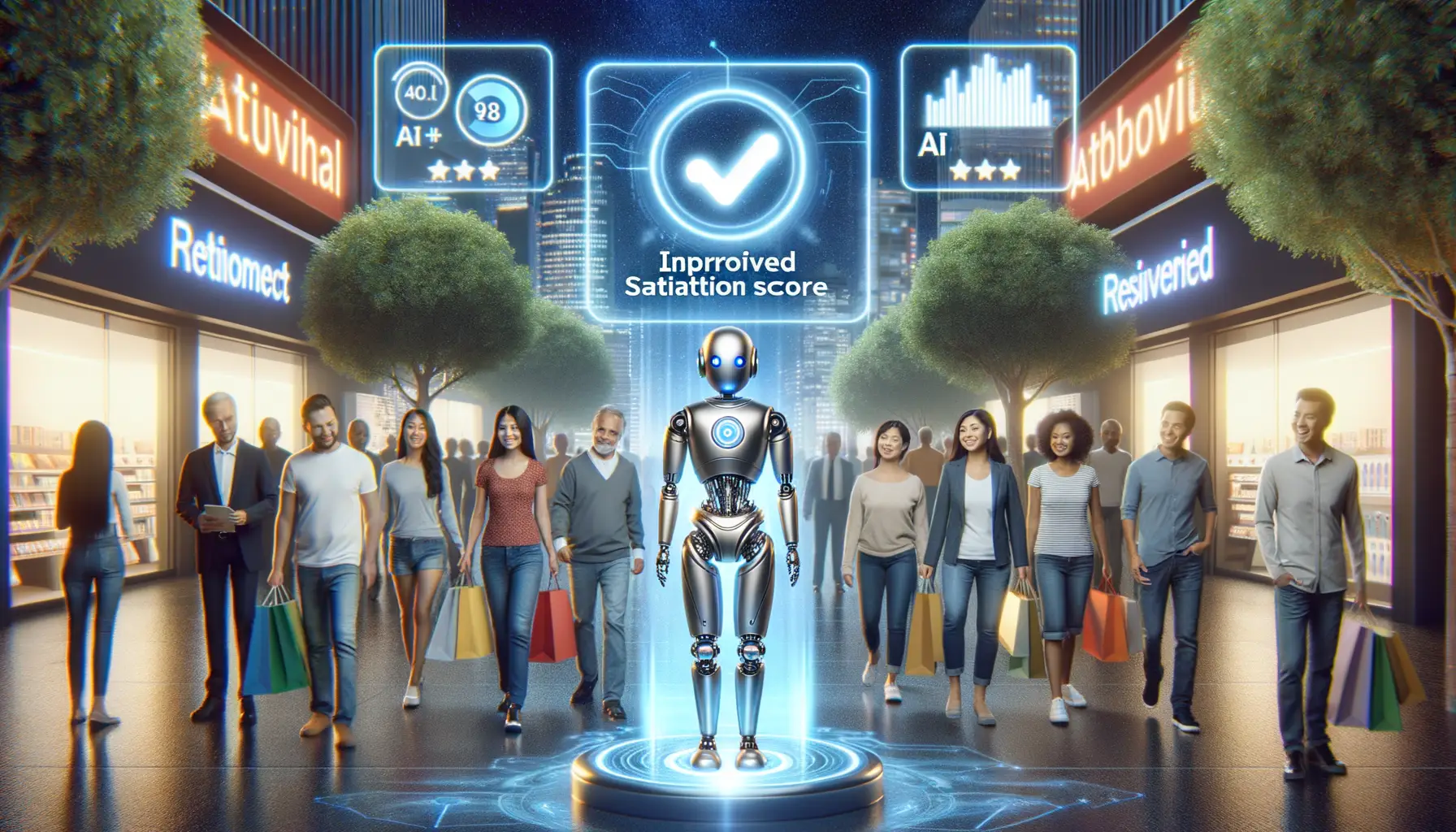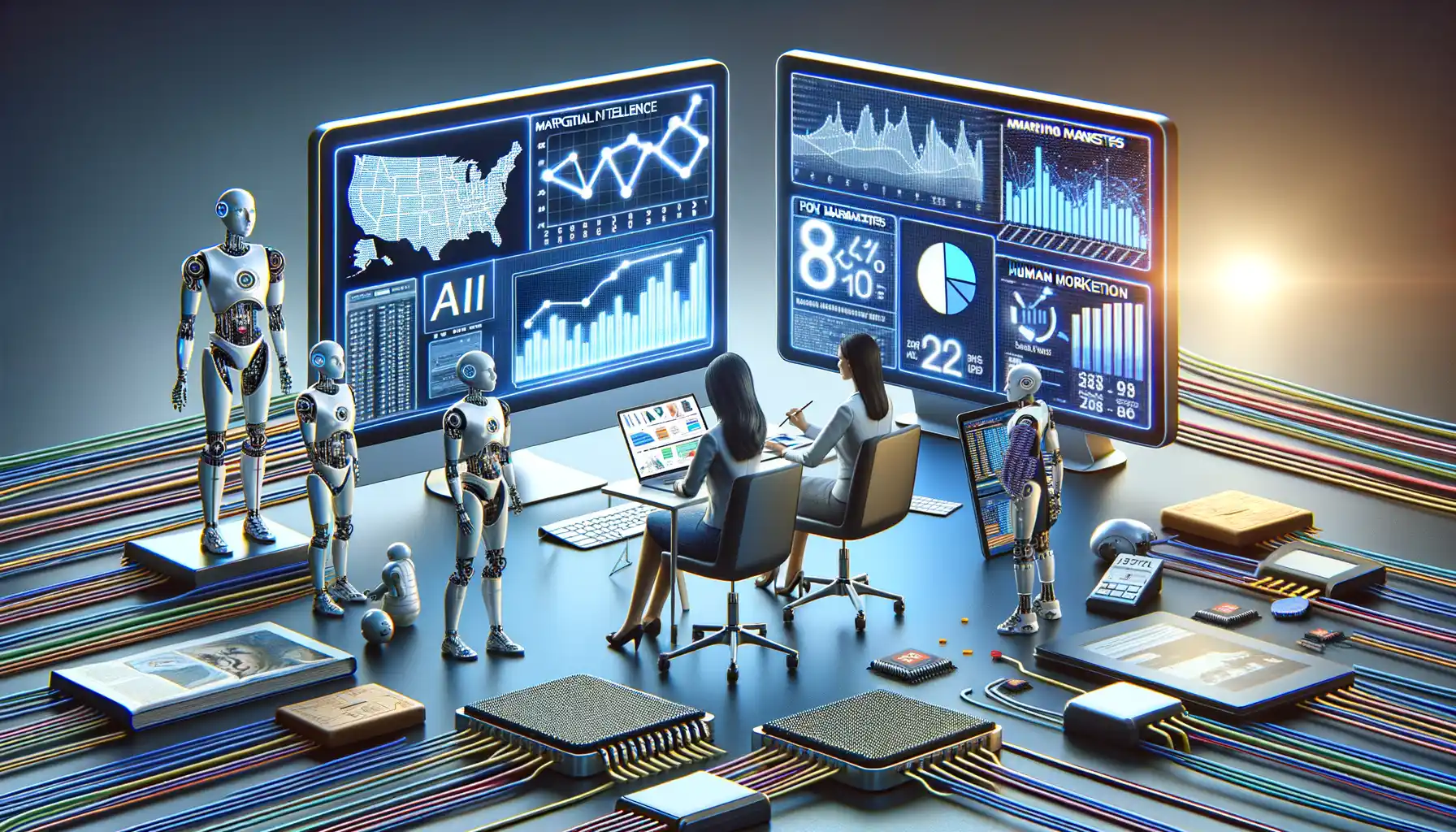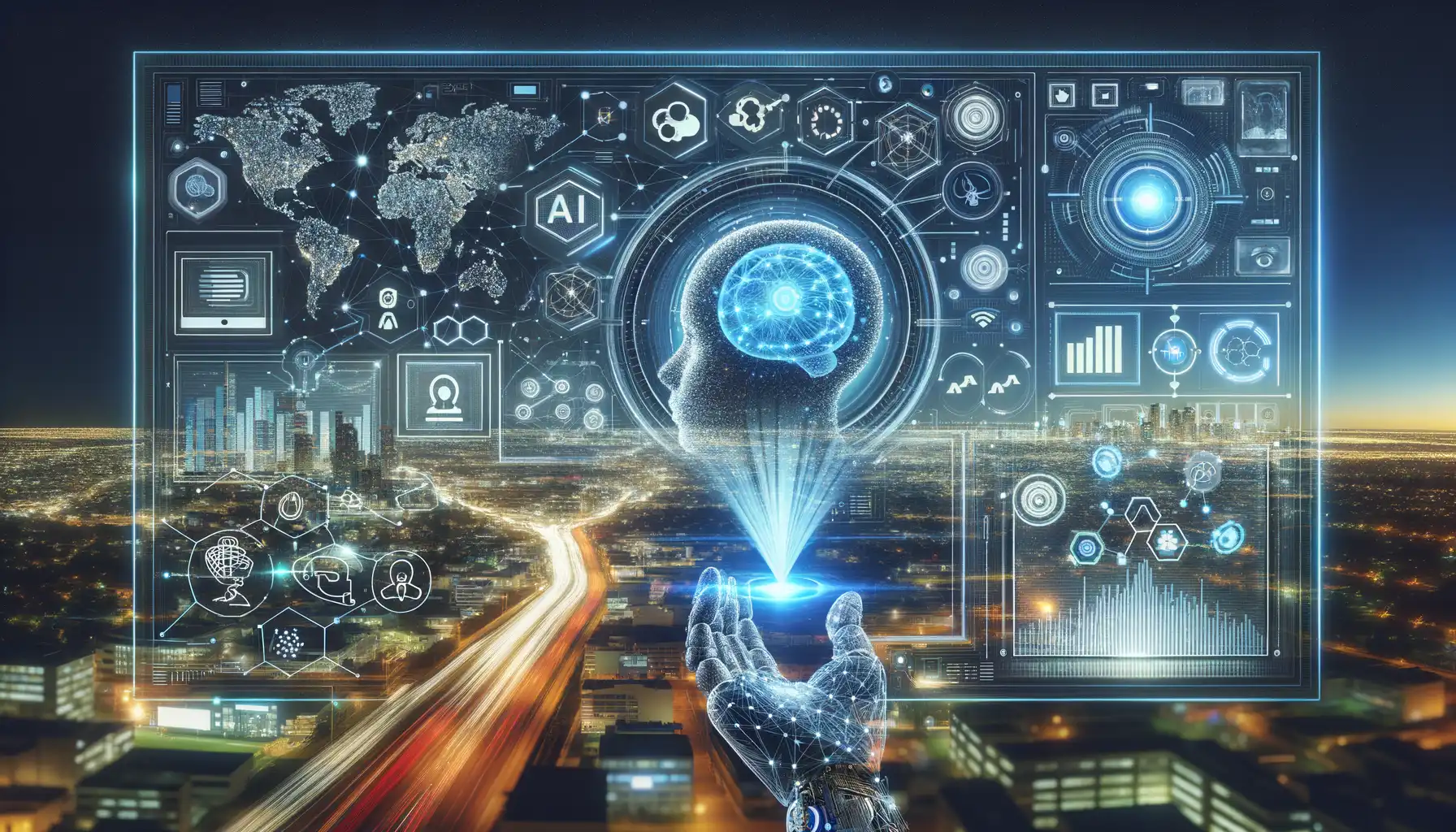The Role of AI in Transforming Digital Marketing
How AI is Shaping the Heart of Digital Marketing
It’s not just sci-fi anymore—artificial intelligence (AI) has marched into digital marketing and set up camp. Think of it as your most brilliant, tireless team member, ready to analyze, predict, and personalize with precision no human could ever match. Gone are the days of marketing feeling like throwing spaghetti at the wall to see what sticks. With AI, every move can be calculated, every campaign backed by data-driven insights.
Imagine this: you’re running an email campaign. Instead of guessing at subject lines or sending generic messages, AI steps in to tailor every email based on user behavior. One recipient gets an offer for sneakers they viewed yesterday, while another receives a blog link about fitness tips because they clicked on exercise equipment. That’s hyper-personalization, powered by AI.
Here are just a few ways AI has transformed the industry from its core:
- Audience segmentation: No more vague categories. AI digs deep into customer data to carve out ultra-specific groups.
- Content generation: Need blog ideas or even first drafts? AI tools like ChatGPT can whip up compelling content in seconds.
AI isn’t just playing by the rules—it’s rewriting them, making marketers smarter and customers happier.
AI-Powered Tools Revolutionizing Marketing Strategies

From Data Overwhelm to Action: How AI Tools Simplify Marketing
Imagine sifting through mountains of data, trying to make sense of customer preferences. Exhausting, right? Enter AI-powered marketing tools—your digital knight in shining armor. These tools don’t just analyze data; they transform it into actionable strategies faster than you can sip your morning coffee.
Take, for instance, AI-driven analytics platforms. They dive deep into customer behaviors and uncover patterns you might never spot on your own. It’s like having a detective on your team, piecing together the puzzle of what works (and what doesn’t). Or consider predictive algorithms that craft tailored email campaigns before your customers even realize they need that product. Spooky? A little. Effective? Absolutely.
- Chatbots: Always-on conversational agents that nurture leads and cut response times.
- Content generation tools: Tools like Jasper AI whip up personalized blogs and ad copy faster than you can say “writer’s block.”
These tools don’t just work harder—they work smarter. They slash repetitive tasks, giving marketers precious hours to focus on creativity and strategy. It’s not replacing human marketers; it’s empowering them to play at their best.
The Impact of AI on Customer Experience

How AI Redefines Human Connections
What if your favorite brand could read your mind? That’s not science fiction anymore—thanks to AI-powered customer experiences, it’s becoming a reality. Think about this: every click, swipe, and pause on a webpage paints a picture of who you are. AI takes that data and turns it into something magical—like walking into a store where every shelf is stocked with precisely what you need.
From personalized product recommendations (Netflix binge-watchers, you know what I mean) to chatbots that don’t sound like robots anymore, AI has shifted the game. Here’s the secret sauce: AI doesn’t just collect data; it learns from it. That’s why your emails are now filled with offers that feel oddly specific… almost eerie, right?
- 24/7 support via intelligent chatbots that never sleep.
- Predictive tools that solve problems before you even notice them.
- Hyper-targeted ads that feel less spammy, more “made for me.”
Moments Over Metrics
At its core, AI enhances emotions over transactions. It helps brands connect with customers on a human level by crafting moments that feel meaningful. Imagine a hotel app reminding you to pack for the coming storm or flight alerts tailored to your trip. These aren’t just conveniences—they’re trust-builders.
But here’s the twist: while AI reaches for perfection, it thrives when tempered with empathy. A chatbot that remembers your name feels good. One that *understands* your frustration and redirects you without a runaround? That builds loyalty. And in a world where options are endless, loyalty is priceless.
Challenges of Implementing AI in Marketing

Pitfalls and Roadblocks in the AI Marketing Journey
AI in marketing feels like unlocking a treasure chest—but sometimes, the chest is booby-trapped. Behind the sleek promises of automation lies a maze of challenges that can leave marketers scratching their heads.
Data, for example, may be marketing’s crown jewel, but most organizations wrestle with turning messy, incomplete datasets into AI gold. Feeding algorithms bad data is like training a chef with spoiled ingredients—nothing good comes out of it. And don’t even get me started on privacy concerns. Regulations like GDPR feel like tightropes marketers must walk, balancing personalization without overstepping boundaries.
When Expectations Clash with Reality
Let’s face it: AI often gets hyped as this tech-savvy magical fairy godmother. But then, reality slaps us with hard truths:
- Not all AI tools integrate seamlessly with existing platforms. Your CRM might end up giving your chatbot the cold shoulder.
- Understanding how an algorithm makes decisions can feel like unraveling a mystery novel—too many twists, too few clear answers.
- Budgets can escalate faster than expected, especially when you factor in training your team to actually use these tools.
But here’s the kicker: the human element. AI doesn’t quite “get” context like we do. A chatbot responding to customer complaints with “That’s fantastic!” because it misread tone? Yep, it happens.
Future Trends and Opportunities in AI for Digital Marketing

The Cutting-Edge AI Trends Redefining Marketing
The future of digital marketing is shimmering on the horizon, powered by the relentless innovation of artificial intelligence. Picture this: AI tools that not only predict customer behavior but almost seem to know your audience better than they know themselves. Sounds like magic? It’s science—and it’s happening.
One undeniable trend is the rise of hyper-personalization. Gone are the days of generic email blasts and cookie-cutter ads. With AI analyzing insane amounts of data in milliseconds, marketers can serve tailored content so precise it feels like a one-on-one conversation. For instance, an AI algorithm might detect that your customer prefers eco-friendly products and instantly suggest a sustainable brand’s newest release before they even search for it. Spooky—or just genius?
- Chatbots leveled-up: They’ve evolved from bland Q&A assistants into witty, conversational guides that build relationships.
- Voice Search Optimization: AI understands how people naturally speak, making voice search strategies non-negotiable for businesses.
Opportunities You Don’t Want to Miss
If you’re not already thinking about predictive analytics, you should be. Imagine knowing which product a customer is eyeing weeks before they hit “Add to Cart.” Retailers like Amazon have embraced this and are staying a thousand steps ahead of competitors.
And let’s not forget immersive tech. AI is blending with VR and AR to create jaw-dropping experiences. Think virtual fitting rooms or interactive ads where customers “try on” products digitally. The result? Higher engagement, fewer returns, and fans who can’t stop talking about your brand.
The bottom line? The future isn’t just bright—it’s blazing.
